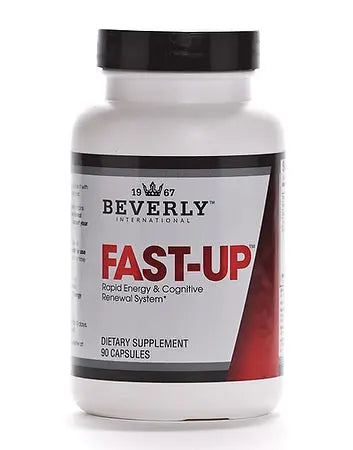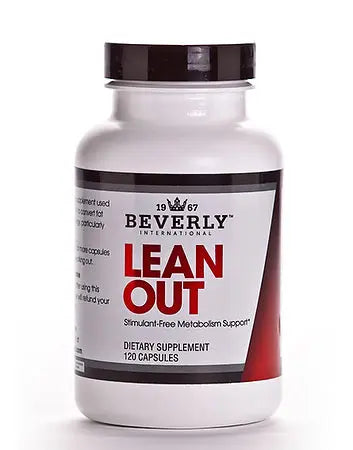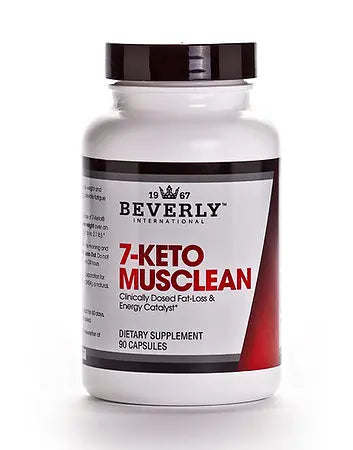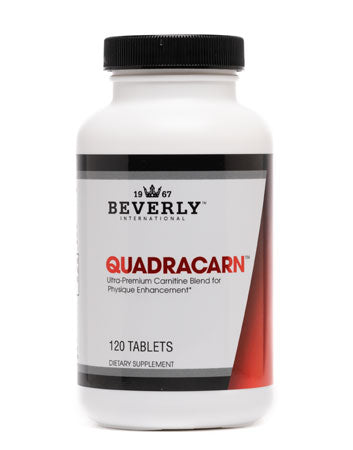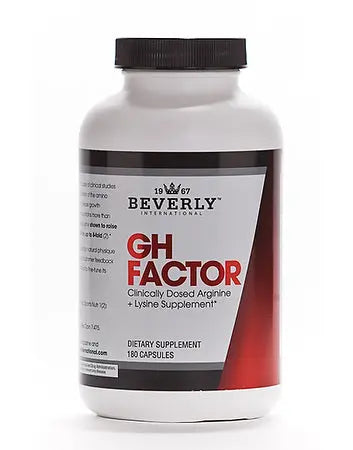
Why You Need Protein - Top 10 Reasons

Is protein really THAT important? Is it only for people that go to the gym "a lot”? Protein is VERY important, especiall if you are a human. 🤣 This article will help you understand why protein is important for everyone, not just workout fanatics.
Why we need protein?
Protein is the second most prevalent compound in the body, second only to water!
Ten Reasons We Need Protein:
-
Energy
Protein is one of the three major macronutrients (The three: Fat / Carbs / Protein) that provides dietary energy for your bodies expenditures.The body typically favors carbohydrates and fats as the main energy sources, that said, if one’s stores are low, the body will take AAs from body and oxidize them to provide energy.
The body can’t store excess protein as "protein", so once the body has used what it can of the ingested protein, the surplus AAs are either used for energy, excreted or converted to fat and stored.
-
Protein Fills You Up and Keeps You Full
High protein meals have are shown to increase sensations of fullness and satiety more than meals with a lower protein content. Simplified (there's a large series of chemical and hormone processes that take place), a key chemical involved is a hormone called Peptide-YY. This hormone tells our hypothalamus to know when we’ve eaten enough from a meal. This process helps explain why we begin to lose the desire to continue eating after a meal.
Add to that, the more protein you take in during a meal, the more enhanced the signal.
-
Enzyme Function
Many proteins function as enzymes which help to facilitate and accelerate chemical reactions. More than 100 chemical reactions occur every second in your body, many of which require enzymes.
An example, when a protein source reaches the stomach there are enzymes called proteases which break down the peptide bonds of protein chains resulting in shorter chains or individual AAs as a part of the digestion process so these proteins become more Bio-Available.
-
Hormones
Proteins are responsible for a number of hormone syntheses. Hormones are chemical information transmitters produced by the endocrine system that travel via the blood, carrying messages from one part of the body to another to help coordinate bodily functions. Hormonal changes due to these messages occur constantly throughout the whole body during the course of the day and are involved in things like body temperature, helping us use food as energy and even to turn enzymes on or off, so some proteins are influencing the action of other proteins.
-
Transport and Storage of Nutrients
Protein also plays an important role in the transportation of nutrients and molecules around the body. In order for your body to move nutrients and molecules from the blood into and out of cells as and where they are required, they must travel through cell membrane channels. These channels operate like gateways, allowing movement from one place to another. These channels, or gateways, as well as the taxi-like cells that transport molecules through these gates are types of proteins. A great example of a transport protein is hamoglobin, responsible for moving oxygen around the body in the blood.
Another good example: cholesterol and triglycerides (a type of fat) are insoluble in water, so they require lipoproteins to not only assist with their transportation around the body but also with their storage
-
Immune Function
When the body is exposed to foreign substances such as viruses or bacteria, the immune system will deploy proteins called antibodies to attack and destroy these potentially harmful substances.
Antibodies, or immunoglobulins as they’re otherwise known, also trigger and work with other immune system cells to destroy invaders to help prevent infection, disease and illness.
-
Fluid Balance
Water always travels from an area of high concentration to one of a low concentration through cellular membranes which are partially porous. Within the body, protein is a key factor in balancing fluid, or in other words maintaining the distribution of water in the body.
The most abundant protein in the blood is called albumin and it acts like a water magnet, pulling water from tissues into the blood vessels. Conversely, when there are low levels of albumin in the blood, the osmotic pressure is reduced and fluid moves into the tissue, a condition known as oedema, which can result in swelling and tissue damage.
Stark examples of edema can be seen in malnourished children whereby because they aren’t getting enough protein in their diet the liver can’t synthesis albumin, meaning there are low levels of albumin in the blood. This results in fluid accumulating in the peritoneal cavity, causing the bloated bellies which are often seen with cases of famine, part of a condition known as 'kwashiorkor'.
-
pH Balance
pH balance refers to how acidic a substance is and most of the human body works best at a neutral pH, around 7.36 and 7.4414, but many things which we encounter on a daily basis such as food and drink, pollution, etc can shift this balance slightly.
If the hydrogen (H+) levels of the blood increases too much the resulting blood pH falls and becomes too acidic (acidosis). Whereas, if the H+ content falls, the blood becomes too alkaline (alkalosis). Both cases can negatively affect bodily functions.
In order to keep the body in equilibrium, the protein albumin can act as a buffer to keep pH level where it should be by either releasing H+ ions if the blood is too alkaline, or take H+ from the blood if it’s too acidic. Thereby maintaining the status a mostly neutral pH.
-
Struction & Motion
Structural protein's function is to provide mechanical support for cells and tissues. Collagen is one of the most abundant and best known structural proteins in the body. It is a strong, fibrous protein found in connective tissues such as tendons and ligaments and makes up about 30% of bone tissue. It is also abundant in the skin giving structure and is accompanied by the protein elastin which makes skin flexible, allowing for tissues to resume their shape after stretching or contracting. Another well known structural and protective protein is keratin which is what skin, hair and nails are made of.
The contractile proteins, actin and myosin found in muscle are involved in movement. They are organized in a way that once stimulated by a nerve impulse they slide back and forth across each other causing a shortening or lengthening of the muscle, leading to movement.
It’s also worth noting that from about 50 years of age humans begin to gradually lose skeletal muscle and function, which can result in an increased risk of experiencing falls, functional decline, frailty and mortality.
It is important to meet the daily recommended protein intake as well as regular activity as we age to maintain muscle mass, strength and mobility.
-
Wound Healing, Repair & Adaptation
Proteins are incredibly important in the wound healing process which involves three key phases: inflammation, proliferation and remodeling.
If you cut your skin, the affected site will become red and inflamed which is a protective tissue response, coagulation will typically begin to stop the bleeding, and the remodeling process will involve laying down collagen to form a scar. Specific proteins are involved in each of the three phases and if someone’s diet is protein deficient this can contribute to poor healing rates.
While wound healing only occurs following some form of physical trauma, the process of tissue regeneration is constantly ongoing. Tissue regeneration is the creation of new cells to replace old, dying tissue. Some tissues will have a faster turnover rate such as skin, hair and the lining of the intestine compared to others like nerve cells which are considerably slower. Tissue regeneration requires lots of different types of proteins such as enzymes, transport proteins, hormones and structural proteins. This process is especially important during phases of growth and development such as pregnancy, childhood and adolescence, which is why children in particular require more protein per kilogram of body weight than adults
So...How Much Protein Do We Need?
The recommended daily amount of protein for a average sedentary individual is about 50g protein per day.
Broken down further, you need approximately 0.8g protein per kilogram of body weight per day (/kg BW/d). However, if you are a more active person you’ll most likely require a greater amount of protein, between 1.2-2.0 g/kg BW/d, to support metabolic adaptations and repair and remodel skeletal muscle tissue.
The specific amount of protein will depend on training modality, duration and volume of exercise.
How FITBODY & Beverly International Supplements Can Help Support Protein Intake
Here are the Supplements we recommend to help with protein intake.
If you’re looking for a high protein snack or super quick protein fix, UMP Protein Bars have 20g protein per bar with with just 230 calories per serving. The anytime, real food, world-class taste, no-nonsense high protein bar.
It’s a delicious combination of Beverly’s “Ultimate Protein” blend (Milk Protein Isolate, Whey Protein Isolate, and Whey Protein Concentrate), almond butter, honey, and sea salt with all-natural gourmet ingredients.
Have a bar before or after workouts. Try one first thing in the morning to give yourself the nutritional edge. Have one between meals, before bed, or pre/post workout. There's no wrong time to eat an UMP Bar.
If you’re looking for something a little more substantial – a high-protein meal substitute or between meal shake that's high in protein – then UMP Protein Powder contains between 20 and 21g of protein.
UMP is a ready to mix and drink option that has almost zero prep time! It's unique, naturally balanced blend of ultra-premium milk proteins stays with your muscles, and satisfies your appetite, for hours. This makes it appealing for a variety of applications and times of use -breakfast, post-workout, meal replacement, nighttime snack, etc.
Once you try it you won't want to be without it!
If you're looking for a Vegan Protein or Gluten Free Protein Powder option, then Beverly PBP (Plant Based Protein) is the ideal plant-based protein powder to fuel your body with quality nutrition and great vanilla taste (with a hint of cherry) without adding any dairy or soy to your diet. Each serving provides 21 grams of protein and a complete amino acid profile (including more than 5 grams BCAAs) for building lean muscle.
YOU MIGHT ALSO LIKE THIS ARTICLE...
Best Supplements for Women Over 40
Featured Supplements
-
Original price $36.95Original price $36.95 - Original price $36.95Original price $36.95Current price $29.56$29.56 - $29.56Current price $29.56
Beverly International Fast Up
Beverly International Fast Up Early morning pre-workout and afternoon kick start supplement that helps with rapid energy & can boost cognitive ...
View full detailsOriginal price $36.95Original price $36.95 - Original price $36.95Original price $36.95Current price $29.56$29.56 - $29.56Current price $29.56Save 20% -
Original price $36.95Original price $36.95 - Original price $36.95Original price $36.95Current price $28.95$28.95 - $28.95Current price $28.95
Beverly International Lean Out
Beverly International Lean Out The No Jitters Stimulant-Free Support for a Clean, Balanced Metabolism Support your body’s natural rhythm and metabo...
View full detailsOriginal price $36.95Original price $36.95 - Original price $36.95Original price $36.95Current price $28.95$28.95 - $28.95Current price $28.95Save 22% -
Original price $45.00Original price $45.00 - Original price $45.00Original price $45.00Current price $36.00$36.00 - $36.00Current price $36.00
Beverly International 7 Keto MuscLEAN
Beverly International 7-Keto MuscLean Beverly International 7-Keto MuscLean is a stand-out among fat-loss products: While other brands may tout th...
View full detailsOriginal price $45.00Original price $45.00 - Original price $45.00Original price $45.00Current price $36.00$36.00 - $36.00Current price $36.00Save 20% -
Original price $42.95Original price $42.95 - Original price $42.95Original price $42.95Current price $34.36$34.36 - $34.36Current price $34.36
Beverly International Quadracarn
Quadracarn from Beverly International Beverly International Quadracarn (pronounced “kwa-dra-carn”) really does do it all! Energy, recovery, stre...
View full detailsOriginal price $42.95Original price $42.95 - Original price $42.95Original price $42.95Current price $34.36$34.36 - $34.36Current price $34.36Save 20% -
Original price $46.00Original price $46.00 - Original price $46.00Original price $46.00Current price $36.80$36.80 - $36.80Current price $36.80
Beverly International GH Factor
Beverly International GH Factor: Advanced Competition Formula Safe, all-natural support.GH Factor may support healthy growth hormone (GH) secretion...
View full detailsOriginal price $46.00Original price $46.00 - Original price $46.00Original price $46.00Current price $36.80$36.80 - $36.80Current price $36.80Save 20%





